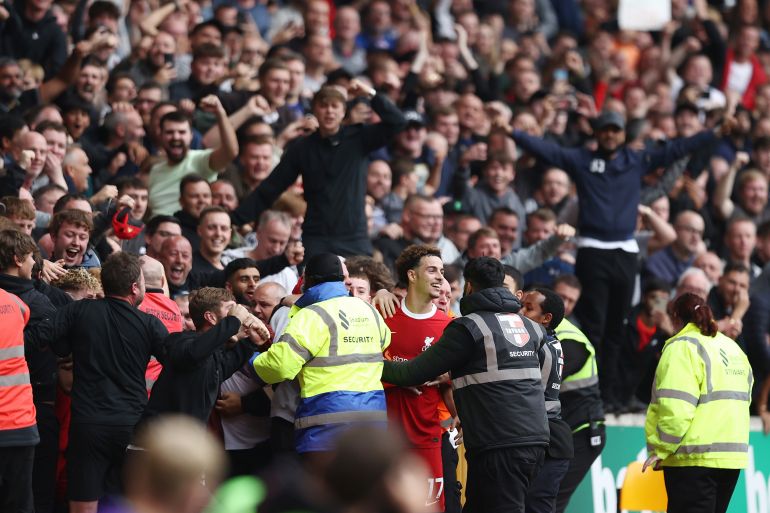Although Darwin scored a few late goals prior to the international break, we also see a few early.
The Premier League’s harsher stoppage-time rules took effect this season, and this weekend saw thrilling late comebacks from Tottenham and Aston Villa.
The PA news agency examines the increase in stoppage-time goals and the amount of time added this season.
On Saturday, Spurs were down 1-0 to Sheffield United and Villa were tied 1-1 with Crystal Palace as time expired.
In just 11 minutes, both had effectively changed the course of their games in their favor.
Richarlison was the hero for Tottenham, scoring the equalizer in the 98th minute and setting up Dejan Kulusevski’s winning goal just over two minutes later.
After falling behind 1-0 until Jhon Duran’s goal in the 87th minute, Villa added a winning third in the 11th extra minute.
It was the third instance in the past two weeks of a club scoring twice in stoppage time to alter the outcome of a game, following Arsenal’s 3-1 victory over Manchester United thanks to goals from Declan Rice and Gabriel Jesus in the 90th and 90th minutes of play, respectively.
In 48 Premier League games this season, there have been 22 stoppage-time goals, compared to just five in the first five rounds of games the previous season.
With 18 coming in the second half, the officials’ time added on accounts for 14.8% of all Premier League goals this season and 19.4% of those in the second half.
On September 2, Manchester City defeated Fulham 5-1 thanks to goals from Nathan Ake and Erling Haaland at 45:05 and 90:05, respectively. On the same day, Tottenham defeated Burnley 5-2 thanks to goals from Cristian Romero and Josh Brownhill in stoppage time. Matches in the Premier League this season have lasted an average of 101 minutes and 43 seconds, up to and including Arsenal’s 1-0 victory at Everton on Sunday.
That is an increase of just over three minutes, or 37.5%, from the 98:31 from the previous term. The figure was only 98:08 at the same point in the season.
After the EFL’s inaugural weekend saw averages of 104 minutes in the Championship, 106 in League One, and 107 in League Two, those figures suggest players are already adjusting to the new rules.

